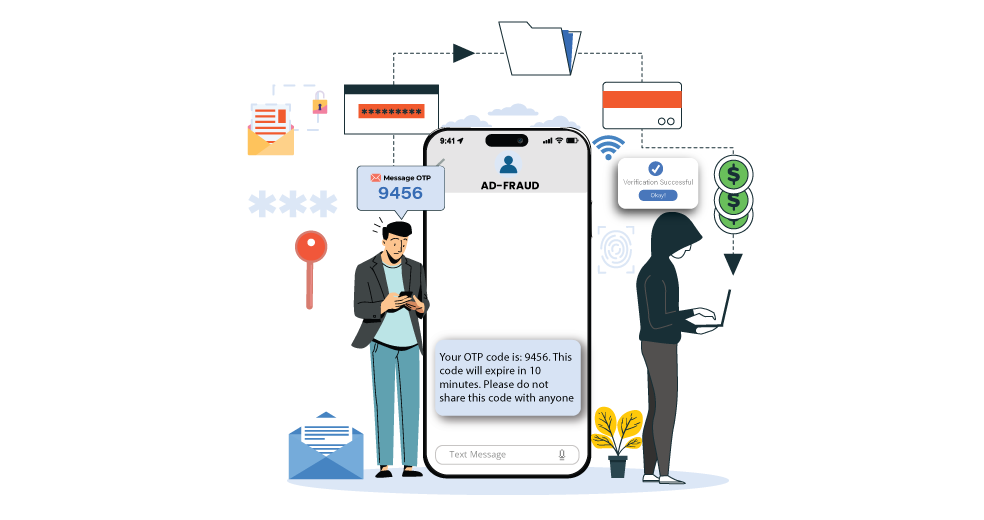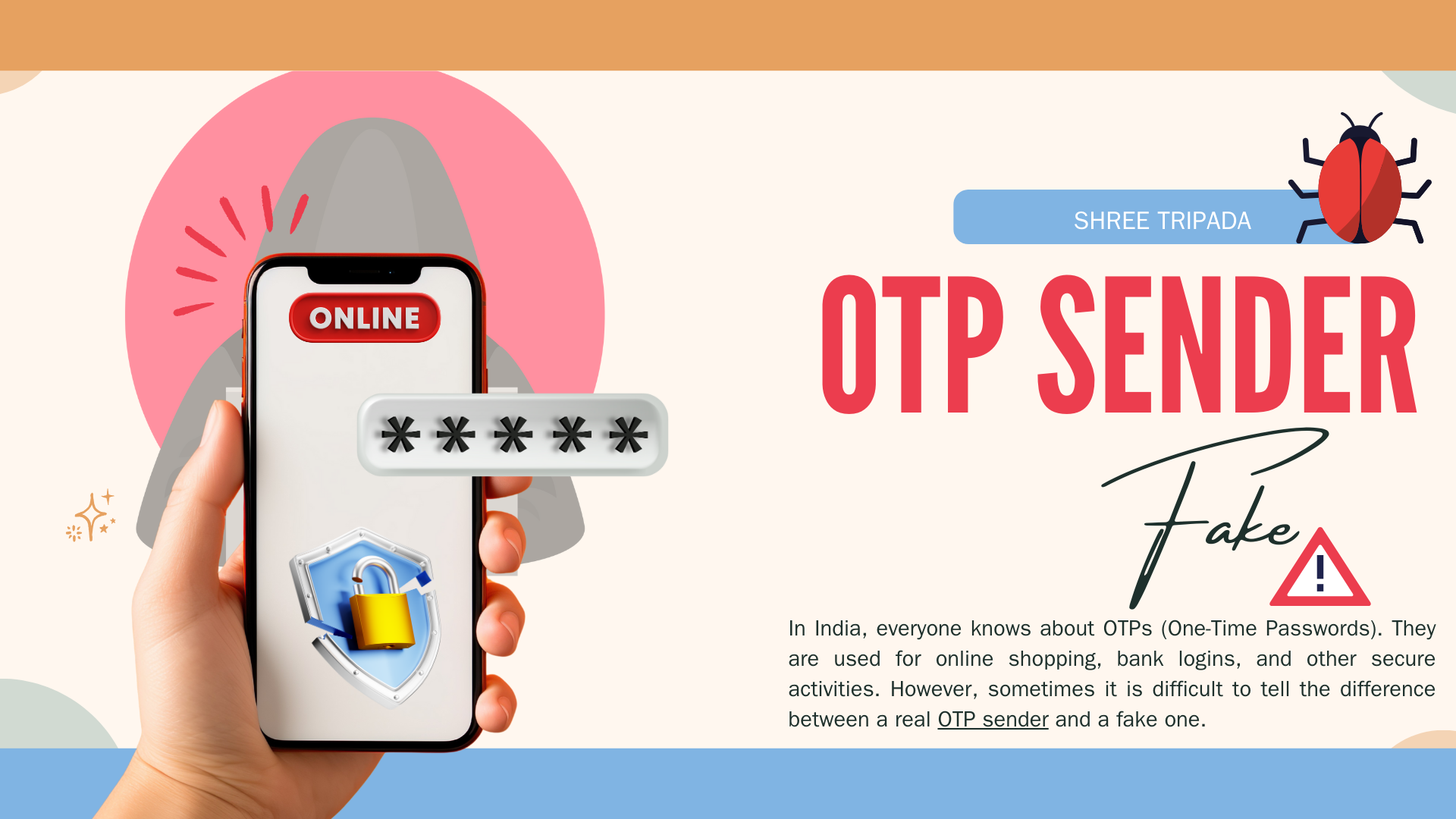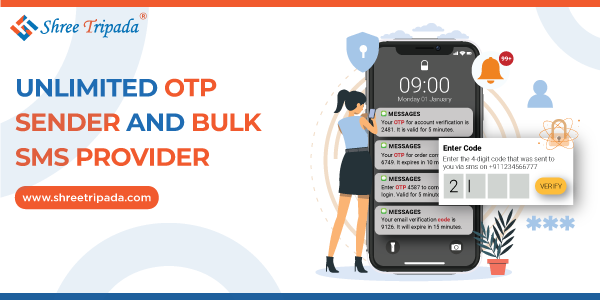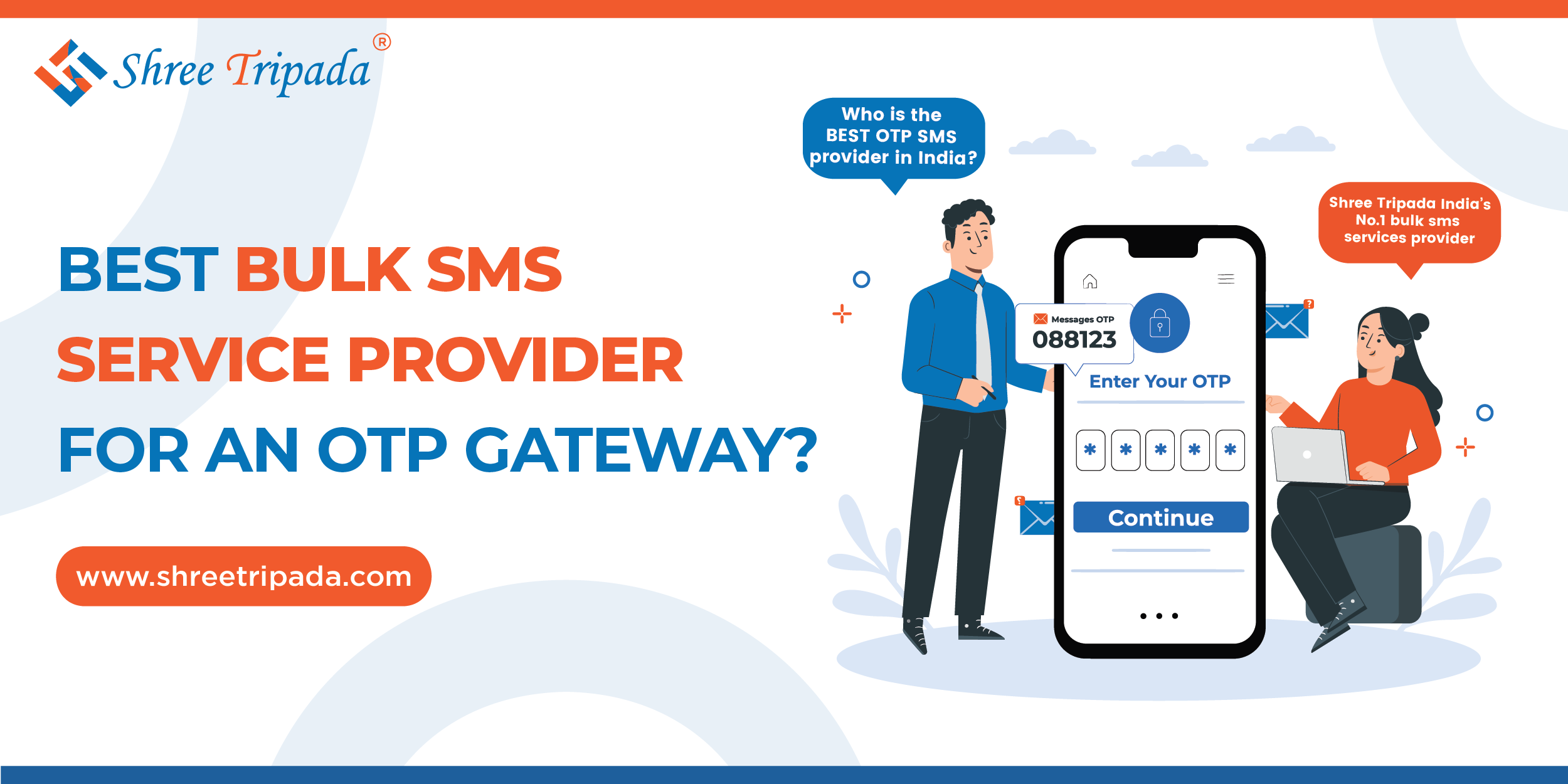Shree Tripada - Unlimited OTP Sender and Bulk SMS Provider
An unlimited OTP sender helps businesses send many special passwords (OTPs) to keep accounts...
Learn more



In India, everyone knows about OTPs (One-Time Passwords). They are used for online shopping, bank logins, and other secure activities. However, sometimes it is difficult to tell the difference between a real OTP sender and a fake one. Scammers take advantage of this confusion to trick people into sharing their personal information. In this blog, we will explain how fake OTP senders work, how dangerous they are, and how you can protect yourself from this scam.
Scammers use different tricks to steal OTPs and cheat people. One common method is sending fake emails or messages that look like they are from banks, UPI apps, or social media platforms. These messages often look real because they use official logos, similar phone numbers, and professional language. Some scammers even change their phone number to make it appear as if the message is from a trusted bank or payment service. This can confuse people because the fake message appears in the same chat as real messages from the bank. Many people trust these messages and follow the instructions without checking if they are real.
To make their scams more believable, fraudsters create fear and urgency. They send messages with warnings like "Your account will be blocked soon" or "Suspicious activity detected! Check immediately!" These messages make people panic and act quickly without thinking. Sometimes, scammers also call the victim, pretending to be bank employees, and ask for the OTP to "secure the account." Once the victim shares the OTP, scammers use it to steal money, change passwords, or take control of bank and social media accounts. In just a few minutes, they can cause big financial and emotional harm.
“While scammers misuse OTPs for fraud, real OTP senders follow strict legal guidelines to ensure safety. Businesses that need to send OTPs should always use a trusted and government-approved bulk SMS service provider like Shree Tripada. It is DLT-verified and fully compliant with telecom regulations, ensuring that all messages are sent legally and securely. Shree Tripada never sends OTPs for scams—it only provides safe and authorized bulk SMS service for businesses that need secure customer communication.”
In 2023, a man from Delhi lost ₹50,000 in a fake OTP scam. He got a call from someone pretending to be a bank officer, saying there was a problem with his account. Shortly after, he received an SMS with an OTP that looked like it came from his bank. The caller told him to share the OTP to "verify his identity and fix the issue." Trusting the caller, he gave the OTP. Within minutes, ₹50,000 was deducted from his account. The scammer used the OTP to approve a fake transaction. By the time he realized it was a scam, it was too late to get his money back.

Fake OTP scams are very dangerous because they look real and create panic. Scammers make their messages seem like they are from banks, UPI apps, or big companies. Since OTPs are commonly used for security, people don’t doubt them. Many trust these messages and share the OTP without thinking. By the time they realize it was a scam, the damage is already done.
With just one OTP, scammers can steal money, change passwords, or take over important accounts like email and social media. This can lead to money loss, identity theft, and stress. Once scammers get access, it is very hard to get back stolen money or data because they move it quickly. In some cases, scammers even lock victims out of their own accounts, making recovery even harder. That’s why it’s important to stay alert and never share OTPs with anyone, no matter how urgent the request seems.
Fake OTP messages look real and create a sense of urgency, making them hard to spot. But there are some warning signs to watch for. Fake OTP messages often come from unknown or suspicious numbers, not official bank or service provider numbers. They may also have spelling mistakes, strange links, or urgent warnings like "Your account will be blocked" or "Verify now to avoid deactivation." Another red flag is receiving an OTP when you didn’t request one. If you get an unexpected OTP, do not share it with anyone, even if they say they are from your bank or a trusted company. Scammers may also call you after sending the OTP, pretending to be customer service and tricking you into giving it to them. To be safe, always contact your bank or service provider directly through their official customer service number.
To protect yourself from fake OTP scams, never share your OTP with anyone, even if they claim to be from a bank or service provider. Use official banking apps and websites instead of clicking on links in messages. Turn on two-factor authentication (2FA) using authentication apps instead of SMS-based OTPs, as they are harder for scammers to steal. Sign up for SMS alerts from your bank to monitor transactions and catch any suspicious activity quickly. If you receive a fake OTP message, report it to your bank, telecom provider, or cybercrime authorities immediately. By staying alert and double-checking every OTP request, you can avoid losing money and protect your personal data from scammers.
If you become a victim of a fake OTP scam, act quickly to reduce the damage. First, immediately call your bank or payment provider and report the fraud. Most banks have a 24/7 helpline for fraud cases. If you report it fast, the bank may be able to stop the transaction or recover your money. Next, change your passwords for all linked accounts, including banking apps, email, and social media, to prevent further misuse. If scammers have used your OTP to access your accounts, check for any unauthorized transactions or changes. Also, inform your mobile service provider if you think your number has been misused or spoofed.
To stay legally protected, report the scam to the Cyber Crime Cell or file a complaint on the National Cyber Crime Portal (www.cybercrime.gov.in) in India. You can also visit your local police station and provide details of the fraud. Under the Information Technology (IT) Act, 2000, OTP fraud is a punishable offense, and legal action can be taken against scammers. Banks and financial institutions also have fraud protection policies, so knowing your rights can help you get a refund or take legal action. Always keep records of scam messages, call logs, and complaint numbers, as they can help in investigations. By reporting the scam and spreading awareness, you can also help protect others from falling into the same trap.
Fake OTP scams are becoming a big problem, but you can protect yourself by staying alert. Always check OTP requests and never share your OTP with anyone. Cybercriminals often use SMS blast scams, where they send bulk fake OTP messages to confuse users and trick them into sharing sensitive details.
Scammers try to trick you by creating panic—don’t fall for it! Stay informed, be cautious, and help spread awareness. Using government-approved bulk SMS services like Shree Tripada can also help keep digital transactions safe. Stay smart and stay safe!

An unlimited OTP sender helps businesses send many special passwords (OTPs) to keep accounts...
Learn more
OTP services are used in many places like banks, online games...
Learn more
OTP sender plays a vital role in the rapidly changing digital environment where security...
Learn more
Have you ever received a one-time password (OTP) via SMS to verify a transaction...
Learn more
Hacking is all too frequent in the realm of technology. The security of data is critical...
Learn more
Way2SMS is a service that helps you send lots of SMS messages fast to many people...
Learn moreImportant Links
Shree Tripada Infomedia India Private Limited
Corporate Head Office:
706 , 7th Floor , North Plaza, Nr 4D Square mall, Beside PVR, Opp Palladium
Nr.Visat Circle ,Motera, Sabarmati, Ahmedabad, Gujarat 380005